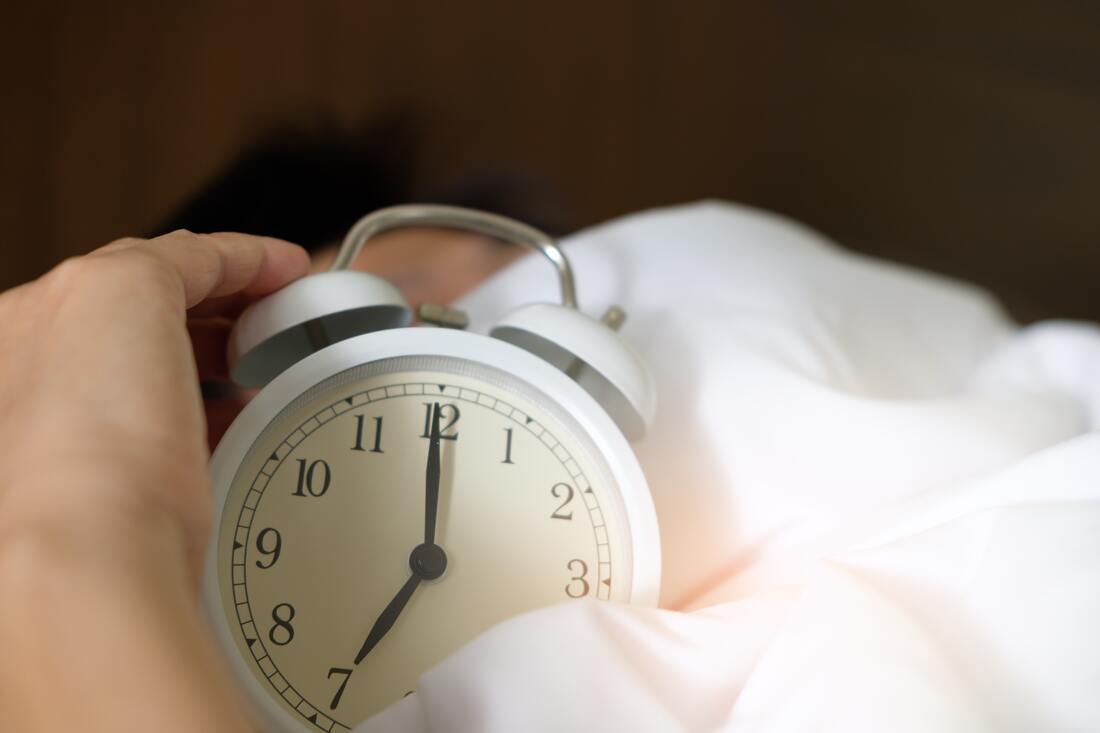|
Life is hectic, busy jobs, demanding families - how best to fit in your training? Often I see athletes squeezing in evening workouts, then suffering from poor sleep. It’s no surprise that the next day they struggle to get out of bed and so the cycle continues. What is going on and why can this impact negatively on your training and recovery? Cortisol. What do you think of when you hear that word? Does the phrase ‘the stress hormone’ spring to mind? Whilst cortisol can be helpful when you're rushing for a deadline or running to catch a bus, not many people realise its huge impacts on our sleep. If you ever have trouble falling, and staying asleep, there’s a good chance that your body is too fired up with this hormone. Not to be vilified, cortisol is crucial to many daily functions. As well as activating our fight-or-flight response, this hormone is also crucial for waking us up in the morning and lowering body inflammation when functioning normally. However, too much cortisol circulating in your body can wreak havoc on your sleep patterns, as well as your health and wellbeing in the short and long term. In anticipation of our waking time, the circadian clock starts off a chain reaction of a series of hormones that results in the release of cortisol. Your body’s cortisol reserves then gradually decline as the day goes on as you head towards bedtime. What happens when cortisol goes awry? A busy lifestyle, stressful work demands, family obligations, and packing in late workouts can throw this cortisol activity out of sync. You get stuck in a high cortisol state, which is not only detrimental for your sleep-wake cycle, but it also lowers your metabolism, impairs your body’s ability to build muscle mass, and causes your body to break down protein into glucose (sugar). This excess glucose is then stored as fat. High cortisol levels are specifically linked to visceral (belly) fat, often the most stubborn fat on the body. Consistently high cortisol levels also leave us vulnerable to insulin resistance, a precursor to both diabetes and obesity. The resulting sleep loss also intensifies your body's cortisol concentration meaning it is elevated throughout the day. Added to this tiredness from not sleeping well, your brain then perceives that fatigue as the need for sugar. This can lead to carbohydrate cravings, fluxes in blood sugar and a lack of insulin control. And so the vicious cycle continues…. Not to mention those 'other' hormonal fluctuations
As women move into perimenopause and menopause, hormone-related sleep issues present another challenge. Both oestrogen and progesterone affect sleep quality and quantity. As your hormones drop, sleep disturbances rise, resulting in poor recovery. And of course bouts of hot flushes and night sweats don’t help, either. So is all night time exercise bad? Low level, aerobic exercise (maximum heart rate zone 1 - 2) may well work for you, as this doesn’t adversely raise cortisol, so long as it isn't too close to bedtime. However, typically I see people doing gym and HIIT type sessions* into the evening, This exercise releases adrenaline and cortisol, which raise your body temperature and keeps you alert. Furthermore, late exercise invariably comes with late light exposure. This late light delays the release of the sleep-promoting hormone melatonin, preventing you from feeling sleepy when it's time for bed. *As a side note, HIIT sessions are fantastic exercise protocols, especially for women going through the perimenopause and menopause for many reasons including cortisol management, but the timing of them is key. For more info on this, see my previous post here. Reasons to be an early exerciser It works with your cortisol: In general, to capitalise your morning cortisol surge, it would make sense to get in an early workout session. As cortisol has anti-inflammatory properties, it plays a key role in your body's rest-and-repair mechanism, which may help speed up post-exercise recovery. In turn it should also help with that night’s sleep. Helps you establish a fitness routine: People who exercise in the morning are often more consistent simply because morning workouts leave less room for excuses. If you train first thing in the morning, you can't skip it in the evening because work got in the way. May improve your sleep cycle: Waking up early might be difficult at first, but research suggests that a morning exercise habit can shift your circadian rhythm so that your body is naturally more alert in the morning and more tired in the evening, so you fall asleep earlier and can exercise in the morning again. And of course sleep helps facilitate muscle growth, so you might even see more strength gains if your circadian rhythm and sleep cycle improve. Can boost your mood throughout the day: Morning workouts are a great way to start each day on a high note due to the endorphins your body produces in response to exercise which keep your mood elevated long past your training. The sense of accomplishment you get after completing a workout can also set you up for an optimistic day. What else can you do to help cortisol levels and sleep? So, we now have an idea of how to manage our exercise protocols and timing of training. But of course life throws us all sorts of other stresses, so how can we help ease ourselves into a restorative sleep? Meditation or practices like yin yoga in the evening can help to bring that parasympathetic system more into play and decrease the stress and cortisol levels. Even getting in some short practices like 'legs up the wall', or getting the legs above the heart can help aid recovery, accelerating the reset process and switching on the parasympathetic system. Delay going to bed after exercise, aim for leaving three hours between the end of your exercise and bedtime, remembering of course to refuel after your training, ensuring you get in adequate protein and replenish those glycogen stores. Read a book: Research has shown that a mere six minutes of sustained reading can lower stress levels by up to 68%! Stay calm during your sleep reset: Waking up in the middle of the night is a common sleep disturbance problem many of us struggle with. The trick, though, is not to stress over how you can't get back to sleep. Doing so will only spike your cortisol levels and spring you into a fully awakened state, making sleep that much more elusive. Drinking a glass of tart cherry juice 30 minutes before bed has been shown to improve endurance and reduce inflammation. It is also one of the few food sources of sleep-promoting melatonin. But for more expert tips on all things sleep related, follow my good friend Dr Nerina Ramlakhan, who is a true guru on the subject!
0 Comments
|
AuthorDenise Yeats is a coach, personal trainer, endurance athlete and avid adventurer. She is passionate about supporting women to achieve their goals, working with, not against their changing physiology. Archives
July 2024
Categories |
Proudly powered by Weebly





 RSS Feed
RSS Feed